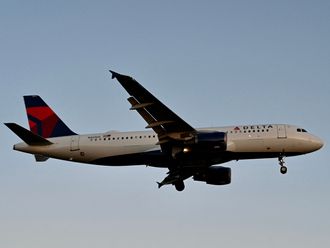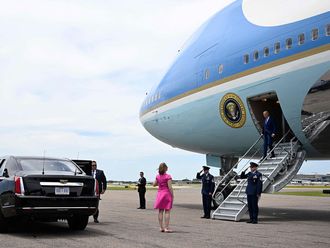Dubai: Successful terrorist attacks on-board flights remain a “distinct possibility,” with organisations such as Daesh and Al Qaida presenting an enduring threat to the aviation industry, experts warned on Sunday.
“Despite our best efforts, successful attacks remain a distinct possibility. Aviation is an iconic and impactful target, which provides the sort of platform terrorists seek … This is a fight we can only win together by using our shared intelligence and resources from people to processors and equipment,” said Lord Callanan, the UK’s Minister for Aviation.
Speaking at the Aviation Security Global conference in Dubai, Callanan added that there is a need to invest in research and new technologies in order to stay a step ahead of any threats.
He pointed that “threats of this magnitude” also require a strong security culture at every stage of a passenger’s journey and at every airport.
“Terrorists will continue to develop devices to evade detections at the airport security check points. Therefore, the security measures we seek to implement are essential. Airport security checks are no longer a nice-to-have; they’re a must-have, without which we leave ourselves vulnerable,” Callanan said.
Traditional view
Also speaking at the conference was Tim Clark, president of Emirates airline, who said that the aviation industry must continue to evolve in terms of the ways it implements security measures.
He added that the traditional view of physical checkpoints being limited to guns, guards, and gates is no longer sufficient.
“I refer not only to the changing landscape of security risks and threats, but also to the constant revision of regulation and controls, the limitations of legacy infrastructure in many aviation systems, and also, the increasing customer expectations for a seamless experience through the aviation ecosystem,” Clark said.
He added that aviation security, when well implemented, “can have a tremendous positive impact on an airline’s operational and commercial indicators.”
In his speech, Clark also discussed the US electronics ban implemented in March this year, saying it “affected [Emirates] probably more than any other airline”. He said the electronics ban protocol was “hugely disruptive, and we could have lost up to 50 per cent of our loads to the US”.










